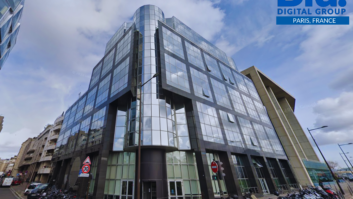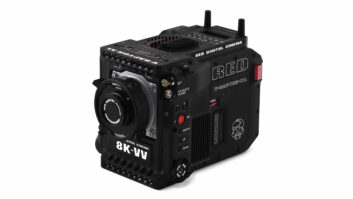Record companies, artists and distributors alike descended on Cannes last week for MIDEM, writes Janet West. Conference sessions reiterated just how rapidly new technology is changing the music industry.
The internet is increasingly connecting musicians, record companies, and advertisers to customers worldwide. But whereas conventional marketing generated a gradual consumer take-up, the internet opens doors to both millions of listeners and a substantial number of pirates overnight.
DRM (digital rights management) on the net is a numbers nightmare and few small record labels have the computing power in-house to monitor the extent of consumers’ appetites. Are customers downloading samples, tracks or whole albums, and for legal access what if they say it didn’t download properly? “This business is now all about data,” said Bob Koln, CEO, RoyaltyShare. “Not looking at the whole picture is business suicide.”
An industry that started live and generated the buying habit for albums on vinyl, reels of tape, CDs, and so on has seen a paradigm shift in the way different age groups access music. Now few 12-25 year olds ever buy physical media and more frequently they will download only one track of music from an entire ablum. High definition, meanwhile, has made concerts larger than life at home and boosted DVD sales. Live music events, it seems, are ever popular and Fabchannel.com, a Dutch online concert channel funded by embedded 10-second ads, streams full screen video from more than 600 performances.
“Technology provides buzz overkill,” said Kenny MacPherson, president, Chrysalis Music Group, ” and unmanageable competition for one’s entertainment dollar.”
“Downloading is a reality, so don’t worry,” said funk legend, George Clinton. “You have access to the whole world. Being clever is finding out how to access it”.
Bare Naked Ladies singer/songwriter, Steven Page, suggested fans become retailers and sell their favourite songs to their friends via their MySpace pages and take a 20%/80% cut with the band.
Record companies signing new acts have to consider how to maximise A&R (Artists and Repertoire) in ever-increasing digital ways. Platforms such as MySpace Records and YouTube, and hardware like MP3 players, iPods, mobile phones and PCs are having enormous influence. The music industry has been looking for new revenue streams just as brands are trying to get closer to consumers, and music makes the perfect match. Product endorsement using musical talent is growing, but each player wants to maximise their slice of the profits. Is Robbie Williams on T-Mobile an endorsement for the telco or the record company wanting to market his new album?
Partnered with MySpace, Snocap,- the follow up to Napster – is providing a digital registry for uploading music. Whereas big names struggle with piracy on the net, the unknown independent artist now has a vehicle to upload his or her tracks. “They set the price and perhaps sell a few hundred for a $3 investment and Snocap adds 40%” said Chris Campbell, Snocap’s business manager, adding that rapper Snoop Dogg signed up last week.
Digital technology has created a complex world and might be eradicating whole sections of the retail industry such as travel agents or record stores, but consumers have never had it so good for choice, growing accessibility to international music and artists at an affordable price.






